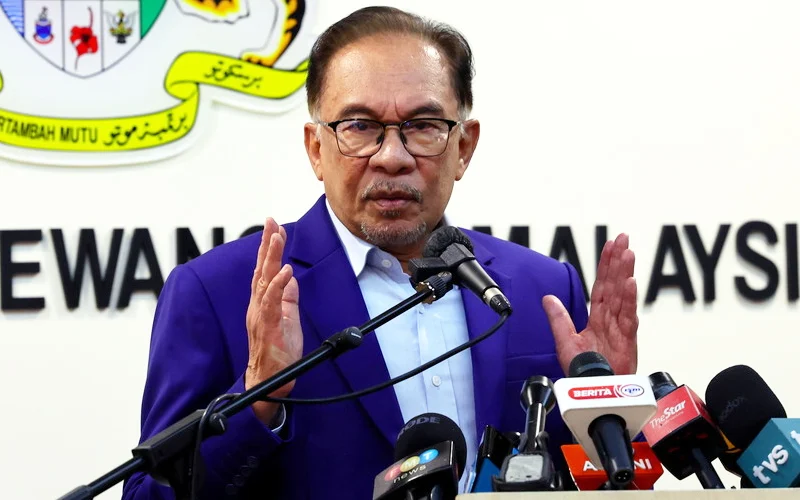The Malay Mail | PETALING JAYA, 25-Aug-2010 : Indian-Muslim restaurants, or Mamak shops, are a common source of food poisoning in Petaling Jaya, according to a survey by Kampung Tunku assemblyman Lau Weng San and Merdeka Centre for Opinion Research.
The “Petaling Jaya City Council residents attitude and opinion towards food outlets on dining out, restaurant cleanliness and Petaling Jaya City Council performance pool” was conducted from 410 selected respondents aged 18 and above. They were interviewed for three days from June 10 via telephone.
The participants from Bukit Gasing, Bukit Lanjan, Damansara Utama, Kampung Tunku, Kota Damansara Seri Setia and Taman Medan.
“In one of the 30 questions posed to them, 15 per cent claimed they had suffered from food poisoning after dining out at food establishments in PJ for the past one year,” said Merdeka Center research manager Tan Seng Keat.
He said 30 per cent believed it was due to dining out at Mamak restaurants.
“Others recognised that the cause of food poisoning was due to eating at outdoor hawker stalls mostly along the streets and hawker stalls in coffeeshops, which stood at 15 per cent and 12 per cent, respectively,” he said, adding the survey margin of error was more than 4.9 per cent.
The survey was conducted via random stratified sampling method along the lines of electoral constituents, ethnicity, gender and age.
Respondents also cited open air food court and non-air-conditioned restaurants (excluding Mamak restaurants) as “dirty” with feedbacks standing at 34 per cent and 31 per cent, respectively.
Tan said hawker stalls, Mamak restaurants and open air food courts need to improve their level of hygiene.
“Cleanliness is the most important criteria for PJ residents to pick a place to dine at. People are particular about the cleanliness of food outlets, and the council’s cleanliness guidelines and laws for food operators are moderate.”
‘This is sabotage!’
THE Malaysian Muslim Restaurant Owners Association (Presma) have questioned the authenticity of the survey findings conducted by Kampung Tunku assemblyman Lau Weng San and Merdeka Center for Opinion Research.
Presma president Noorul Hassan told The Malay Mail he has doubts over the validity of the survey.
“This is sabotage and biased towards Mamak food joints! It’s totally unacceptable and it’s not fair to blame us in a survey which was just based on interviews and distorted facts.”
He said there could be other factors contributing to food poisoning as experienced by many of the respondents.
Claiming the survey was the latest ploy to discredit and damage the reputation of Mamak food operators in Petaling Jaya and nationwide, he said: “I believe it was never substantiated by medical evidence to show the respondents suffered from food poisoning as a result from eating at Mamak restaurants.
“They always get the blame. If it’s true we are unhygienic, I don’t think people will visit Mamak restaurants regularly. The level of cleanliness has improved tremendously and if not, it’s so much better than the other so-called reputable dining places,” he said, adding that 15 per cent with food poisoning out of 410 respondents was not a fair reflection of the whole survey.
‘Three-strikes’ rule
 KAMPUNG Tunku assemblyman Lau Weng San (pic) said among the objectives of the research were mainly to obtain residents’ feedback on the ‘Three-Strikes’ enforcement rule for food establishments within Petaling Jaya City Council’s jurisdiction.
KAMPUNG Tunku assemblyman Lau Weng San (pic) said among the objectives of the research were mainly to obtain residents’ feedback on the ‘Three-Strikes’ enforcement rule for food establishments within Petaling Jaya City Council’s jurisdiction.
“I was also interested to find out the public’s satisfaction with the overall performance of the council regarding cleanliness at food outlets,” said Lau in a Press conference at the DAP headquarters yesterday.
He said the ‘Three-Strikes’ rule has yet to be implemented in Selangor since it was mooted a year ago by the State government.
“The rule stipulates that if a hygiene offence is committed more than three times in a year, the food establishment will have its licence revoked,” he said, adding that 91 per cent of the survey respondents agreed with the rule to be implemented.
He said a third of respondents were concerned that the rule would lead to potential power abuse or corruption by unscrupulous enforcement officers.
“I hope we could look at different perspectives of the survey and also for the Selangor government to have a better understanding on cleanliness at food outlets.”






 KAMPUNG Tunku assemblyman Lau Weng San (pic) said among the objectives of the research were mainly to obtain residents’ feedback on the ‘Three-Strikes’ enforcement rule for food establishments within Petaling Jaya City Council’s jurisdiction.
KAMPUNG Tunku assemblyman Lau Weng San (pic) said among the objectives of the research were mainly to obtain residents’ feedback on the ‘Three-Strikes’ enforcement rule for food establishments within Petaling Jaya City Council’s jurisdiction.